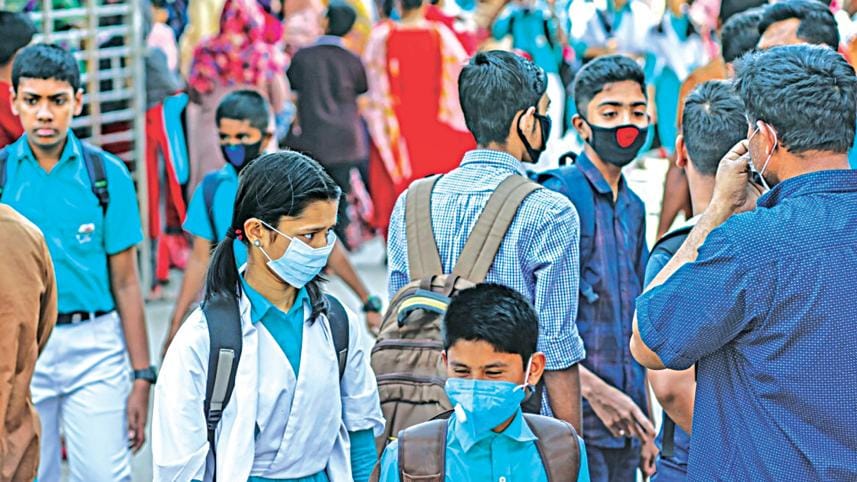Children need proper support to recover from pandemic

It is clear by now that the two years of the Covid-19 pandemic have left deep scars in various sectors including education. School-age children were especially vulnerable, as they found themselves trapped within the four walls having no idea how to cope with the sudden closure of schools, the unfamiliar experience of distant learning or the grim stories of deaths and sufferings caused by the virus every day. They could hardly share the anguish they suffered in their minds. Many children have even gone through the trauma of witnessing deaths of their loved ones. All this was bound to have profound effects on their mental health and educational prospects.
In recent times, educationists, researchers, and psychologists have sought to address the multidimensional effects of the pandemic on children, including girls in rural areas who were particularly vulnerable, and how those may affect their future life trajectories. They stressed that while some of the scars will be healed soon, others will take a longer time needing psychological counselling at home and in schools. A recently published study on adolescent girls' vulnerabilities, conducted by Brac Institute of Governance and Development (BIGD) and supported by the British High Commission and German Embassy, shows that children had to handle lowered educational aspirations, poorer psychosocial well-being, increased familial restrictions and controls imposed over social relations.
Researchers, using statistics drawn from household surveys, tell us that tackling economic hardship during the lockdown period was a major concern in almost every household, as a result of which adults and adolescents had to suffer equally as they worried about their future. Many adolescent boys had to work to supplement their family income by leaving schools. Many parents arranged marriages for their underage daughters, which is likely to narrow their life prospects among other harmful effects. Many had to suffer domestic violence. There were also concerns about the quality of education received, for those who were fortunate to receive it. All this shows the importance of the continuity of classroom education in schools, where children have the means to play and intermingle after classes.
Children's mental wellbeing is particularly important as they try to recover from the fallout of the pandemic. It needs greater policy attention, while tackling economic distress in their families, ensuring learning recovery and setting schools as a socialisation platform should also be a priority. We urge the authorities to integrate these issues into their recovery plans for the schoolchildren.



 For all latest news, follow The Daily Star's Google News channel.
For all latest news, follow The Daily Star's Google News channel.
Comments